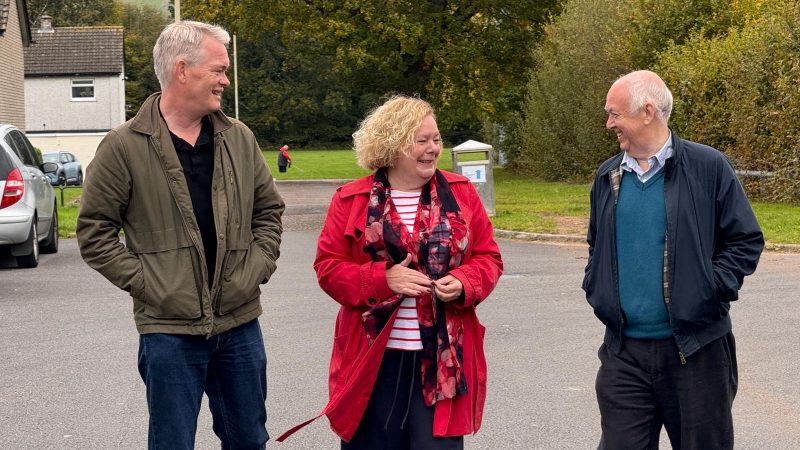
Last Thursday, the London based UK Media came in droves to Caerphilly for the count after the Senedd by-election. They anticipated a decisive Reform UK victory. This was, after all, what the opinion polls were predicting, what the bookies’ odds were indicating, and what Nigel Farage was expecting. In fact, Farage was planning to attend the count personally to claim the anticipated victory. Reform UK had even arranged, and were selling tickets for, a lavish celebration at a nearby country hotel.
But, of course, Reform UK was beaten into second place by Plaid Cymru who secured a majority of nearly 4,000. Welsh Labour came a distant third.
For much of the media, the big story was the defeat of Labour in a hitherto heartland stronghold, a Westminster seat which had been Labour since 1918. Without any analysis or understanding, the result has been depicted by much of the media as a
huge setback for Labour, or worse.
While it would be foolish to pretend the result does not require the Labour Party, and to a lesser extent Welsh Labour, to examine why support was lost to Plaid, it is vitally important to understand the context in which many people switched their support from Labour to Plaid and their tactical motivation for doing so.
For most of the campaign, Reform UK were the front runners but as the campaign developed Reform UK were increasingly seen as being profoundly divisive outsiders who had no understanding of, or empathy with, the communities which make up the constituency. Farage visited the constituency on at least three occasions and Reform UK made no attempt to engage with local issues, relying instead on racist anti-migrant rhetoric. The local Ukrainian community in particular felt under pressure and liaised effectively with progressives across the political spectrum.
Subscribe here to our daily newsletter roundup of Labour news, analysis and comment– and follow us on Bluesky, WhatsApp, X and Facebook.
As the ‘minder’ for the excellent Labour candidate, Richard Tunnicliffe, I spoke with literally hundreds of people across the length and breadth of the constituency during the six weeks of the campaign. Having been the MP for 23 years, many of these former constituents I knew well.
By the mid-point of the campaign, it was clear that opinion in the constituency was polarising – people were either ‘for’ or ‘against’ Reform UK. At this point, the level of support for Labour and Plaid was not hugely different but a Wales-wide opinion poll gave the impression that Plaid was the main challenger to Reform. During the closing stage of the campaign many Labour supporters therefore ‘lent’ their support to Plaid to stop Reform UK. As one Labour Party member told me “the important thing in this by-election is to send Reform packing. Nothing is more important than that”. This sentiment was reinforced by the fact that the successful candidate will only hold the seat for six months as the next full Senedd election will be in May 2026.
The result of the by-election was a resounding defeat for Reform UK, following a high by-election turnout of over 50%, and unprecedented tactical voting. Clearly, at all levels, Labour has a lot of work to do but an understanding of the dynamics at play in this by-election provides us with a useful starting point.
Share your thoughts. Contribute on this story or tell your own by writing to our Editor. The best letters every week will be published on the site. Find out how to get your letter published.
-
- SHARE: If you have anything to share that we should be looking into or publishing about this story – or any other topic involving Labour– contact us (strictly anonymously if you wish) at [email protected].
- SUBSCRIBE: Sign up to LabourList’s morning email here for the best briefing on everything Labour, every weekday morning.
- DONATE: If you value our work, please chip in a few pounds a week and become one of our supporters, helping sustain and expand our coverage.
- PARTNER: If you or your organisation might be interested in partnering with us on sponsored events or projects, email [email protected].
- ADVERTISE: If your organisation would like to advertise or run sponsored pieces on LabourList‘s daily newsletter or website, contact our exclusive ad partners Total Politics at [email protected].




More from LabourList
Sadiq Khan signals he will stand for a fourth term as London Mayor
Starmer or Sarwar: Scottish Labour MSPs and MPs split over Keir Starmer’s future
‘Every Lidl helps: What can the Government do to bring down food prices?’